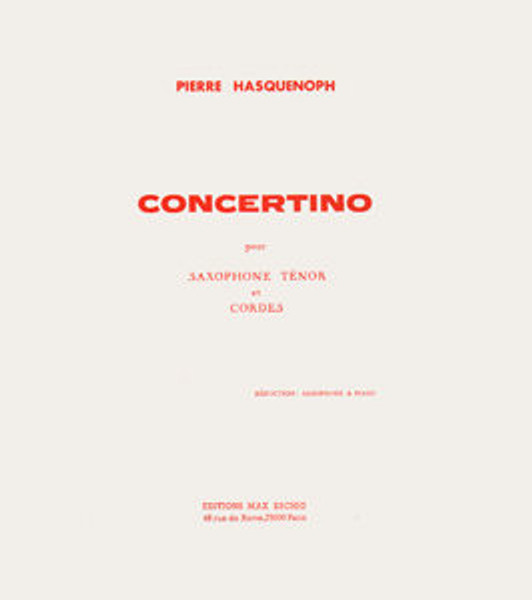Description
Max Bruch: Kol Nidrei, Op. 47 for Violoncello and Piano
Product Information
- UPC: 9790045010355 / 979-0045010355
- Product Type: Violoncello and Piano Sheet Music
- Length: 16 pages
- Publisher: Max-Eschig
- Item Number: ME00147000
- Other Reference: ME00147000
Overview
Kol Nidrei, Op. 47, composed in 1880 by the German Romantic composer Max Bruch, is a deeply poignant and expressive piece for violoncello and piano (or orchestra). Inspired by the ancient Jewish prayer "Kol Nidrei", traditionally recited at the beginning of Yom Kippur — the Day of Atonement — this work captures the solemn spirit of one of the most sacred moments in Jewish religious life.
Although Bruch was not Jewish, he had a deep appreciation for Jewish music and drew from it with genuine respect and emotional insight. The work opens with a dramatic cello solo, directly quoting the haunting chant of Kol Nidrei, setting a tone of introspection, supplication, and spiritual yearning. A second lyrical theme, based on another Hebrew melody, follows, offering contrast and warmth. The cello part is at once technically demanding and emotionally expansive, giving the performer room to express sorrow, hope, reverence, and inner strength. The music's long, singing phrases and elegiac character evoke a timeless sense of longing and reflection, resonating with audiences regardless of background. Often performed as a concert piece, Kol Nidrei has become a beloved part of the cello repertoire. It is admired not only for its melodic beauty and rich harmonic language, but also for its ability to communicate a universal sense of the human condition — themes of repentance, renewal, and the search for peace.
French Translation - Overview
Composée en 1880 par le compositeur romantique allemand Max Bruch, Kol Nidrei, Op. 47 est une œuvre profondément émotive et expressive pour violoncelle et piano (ou orchestre). Elle s’inspire de la prière juive traditionnelle "Kol Nidrei", récitée lors de l’ouverture de Yom Kippour, le Jour du Grand Pardon — l’un des moments les plus solennels du calendrier religieux juif.
Bien que Bruch ne fût pas de confession juive, il nourrissait un profond respect pour la musique juive, qu’il considérait comme noble, émotive et spirituellement riche. Dès les premières mesures, le violoncelle expose le thème principal, emprunté au chant liturgique traditionnel, dans un élan chargé de gravité et de ferveur intérieure. Une seconde mélodie, également d'origine hébraïque, apporte une touche de chaleur et de lyrisme. La partie de violoncelle, exigeante sur le plan technique, se distingue par sa grande expressivité et sa noblesse. Le soliste y déploie des lignes mélodiques longues et chantantes, traversées par une palette d’émotions : mélancolie, recueillement, espoir, et sérénité. L’œuvre touche par sa capacité à exprimer l’intériorité humaine, au-delà des croyances ou des frontières culturelles. Aujourd’hui, Kol Nidrei est considéré comme un pilier du répertoire pour violoncelle. Il est apprécié non seulement pour sa beauté mélodique et sa profondeur harmonique, mais aussi pour la façon dont il transmet une émotion universelle – celle de la quête de rédemption, de renouveau et de paix intérieure.
Product Features
- Format & Dimensions: Standard sheet music
- Instrumentation: Violoncello and Piano
- Difficulty Level: Intermediate to advanced, suitable for skilled performers
- Length: 16 pages, providing a concise yet impactful musical experience
Interesting Facts
- Cultural Significance: "Kol Nidrei" reflects Bruch's deep respect for Jewish traditions and his ability to convey profound emotions through music.
- Performance Popularity: The piece is frequently performed in recitals and is a staple in the cello repertoire, appreciated for its melodic beauty and emotional depth.
- Legacy of Bruch: Max Bruch is celebrated for his contributions to Romantic music, particularly his concertos and chamber works, which continue to be performed widely today.
French Translation - Interesting Facts
- Importance culturelle : Kol Nidrei reflète le profond respect de Max Bruch pour les traditions juives ainsi que sa capacité à exprimer des émotions intenses à travers la musique.
- Popularité en interprétation : Cette œuvre est fréquemment interprétée en récital et constitue un pilier du répertoire pour violoncelle, appréciée pour sa beauté mélodique et sa profondeur émotionnelle.
- Héritage de Bruch : Max Bruch est reconnu pour ses contributions à la musique romantique, en particulier ses concertos et ses œuvres de musique de chambre, qui continuent d’être largement interprétés de nos jours.
Publishers
Published by Max-Eschig, a respected publisher in the field of classical music, dedicated to providing musicians with high-quality scores that enhance their performance experience.
We value your feedback! Share your experience with this product to help others make informed decisions. Your review is important to us!
Hashtags
#MaxBruch #KolNidrei #VioloncelloAndPiano #ClassicalMusic #MaxEschig
















